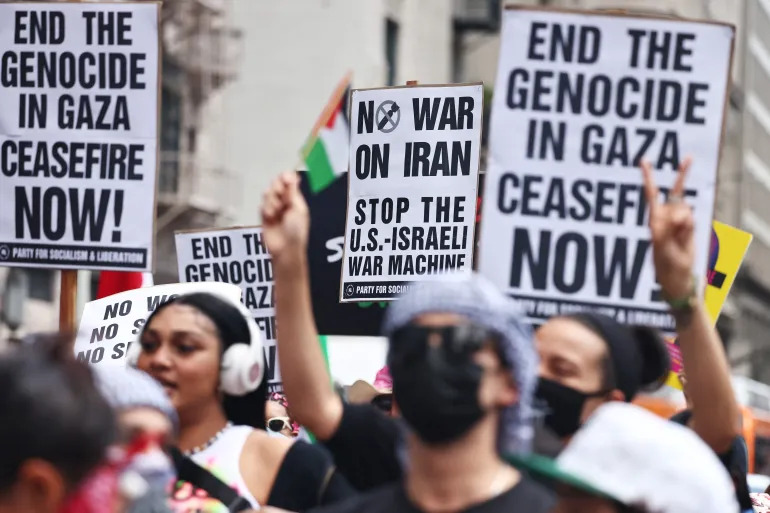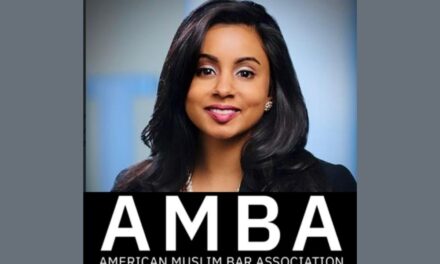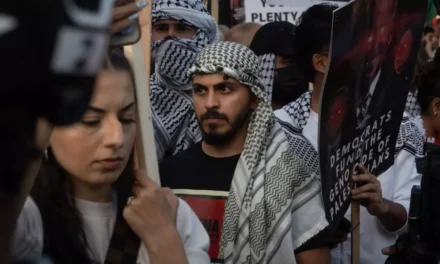Columbia University has expelled or suspended nearly 80 students, some for up to three years, and revoked degrees in response to participation in antiwar demonstrations on campus, including the 2024 pro-Palestinian encampments that captured national attention.
The Ivy League institution said the actions stemmed from violations of university policy during multiple protest actions, including the occupation of Butler Library in May 2025 and the spring encampments staged during Alumni Weekend.
“These disruptions to academic activities are in violation of University policies and rules, and such violations will necessarily generate consequences,” the university said.
Student Group Calls Sanctions Unprecedented
The Columbia University Apartheid Divest group, or CUAD, which has been at the forefront of pro-Palestinian activism on campus, confirmed that nearly 80 students have been penalized. The group said the sanctions were “hugely excessive compared to precedent for teach-ins or non-Palestine-related building occupations.”
“We will not be deterred. We are committed to the struggle for Palestinian liberation,” CUAD said in a public statement.
The university’s decision follows months of rising student activism in response to Israel’s war in Gaza. Protesters had called for Columbia to cut financial ties with companies linked to the Israeli military.
In spring 2024, a series of student-led encampments helped ignite a wider global protest movement. Eventually, those camps were dismantled after Columbia allowed New York City police onto campus, resulting in numerous arrests.
Despite the crackdown, students once again occupied Butler Library during final exams in May, demanding full divestment and expressing solidarity with Palestinians in Gaza.
University Responds as Federal Pressure Mounts
Columbia’s Judicial Board said this week’s disciplinary actions represent the “final set of findings” from the spring protests. The exact number of expulsions was not disclosed.
University leadership is also under federal scrutiny. Acting President Claire Shipman, a former trustee, was met with boos from students during the May graduation ceremony. She has become a polarizing figure, with critics accusing her of silencing political dissent under pressure from federal authorities.
Columbia is currently negotiating with the Trump administration to restore about $400 million in federal funding. The administration had suspended the funds over what it described as the school’s failure to “meaningfully protect Jewish students against severe and pervasive harassment.”
Meanwhile, fellow Ivy League institution Harvard University is pushing back. Targeted with similar funding threats, Harvard has taken legal action against the Trump administration, challenging the pressure to alter campus policy.
Protests Persist as Gaza Crisis Deepens
The latest wave of Columbia’s disciplinary actions came as the humanitarian crisis in Gaza worsened. At least 15 Palestinians, including a six-week-old infant, died of hunger and malnutrition within a 24-hour span, according to health officials.
Mahmoud Khalil, a prominent Columbia student protest leader, continues to fight his own legal battle. Detained in Louisiana immigration custody amid calls for the deportation of pro-Palestinian activists, Khalil was released more than a month ago. He met with lawmakers in Washington, D.C., on Tuesday, advocating for student rights and Palestinian solidarity.
Across the United States, campuses remain tense. At George Washington University in April, demonstrators erected protest camps, joining a wave of student activism that critics say has been met with increasingly aggressive suppression.
As students continue to rally under the banner “Good Trouble Lives On,” the intersection of civil liberties, higher education, and foreign policy remains a deeply divisive flashpoint.
By Mehr Jan














